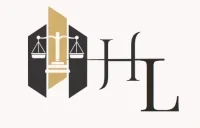In a significant judgment delivered on May 28, 2025, the Supreme Court of India in N.S. Gnaneshwaran vs. The Inspector of Police in Criminal Appeal Nos. of 2025 (@ SLP (CRL) NOS. 17481-17482 OF 2024) decided on May 28, 2025 demonstrated how courts balance criminal prosecution with practical resolution of disputes when parties reach comprehensive settlements. The case provides crucial insights into when criminal proceedings may be quashed despite prima facie evidence of offenses..

Case Background
The case involved allegations of banking fraud worth Rs. 25.89 lakhs against nine accused persons, including the appellants N.S. Gnaneshwaran and N.S. Madanlal. The accusations centered around fraudulent diversion of funds sanctioned to M/s Vinayaka Corporation, involving forged signatures, fictitious identities, and a network of accounts used to siphon bank funds.
The Settlement Factor
The turning point came when the bank implemented a One Time Settlement (OTS) scheme. The main borrowers availed this scheme and made full repayment of dues. Consequently, the bank recorded its satisfaction in pending recovery proceedings, which were dismissed as settled. The bank also issued No Dues Certificates, formally acknowledging complete resolution of financial disputes.
High Court’s Initial Reluctance
The Madras High Court initially dismissed the appellants’ petitions under Section 482 of the Criminal Procedure Code, reasoning that:
- The trial stage was advanced
- A prima facie case existed
- Criminal proceedings shouldn’t be quashed merely based on OTS
Supreme Court’s Reasoning
The Supreme Court overturned this decision, emphasizing several key principles:
1. Purposelessness of Continued Prosecution
The Court observed that “no useful purpose would be served by continuing the criminal proceedings” when the underlying dispute had been comprehensively resolved through settlement.
2. Complete Resolution of Disputes
The judgment highlighted that the bank had received the entire outstanding amount, recovery proceedings were dismissed as settled, and no residual claims survived.
3. Absence of Continuing Public Interest
Crucially, the Court noted there was “no continuing public interest” that warranted allowing the matter to proceed further, especially after settlement occurred post-alleged offense commission.
4. Parity Principle
The Court applied the principle of parity, noting that identical proceedings by the CBI against the same appellants had been quashed after settlement, and the Supreme Court had previously dismissed special leave petitions challenging such quashing.
Legal Implications:
The above said judgment tends to help our learned Advocate’s to rely upon this judgment in the cases where settlement has been arrived between the parties and when the public interest is not continuing.
Please do subscribe to our newsletter!!
Read our recent summaries:
- Supreme Court Quashes Criminal Proceedings After One Time Settlement: Key Takeaways for Banking Fraud CasesSupreme Court quashes criminal proceedings in N.S. Gnaneshwaran case after One Time Settlement between parties, emphasizing no continuing public interest warrants prosecution continuation.
- Supreme Court Clarifies Whether an Application for Extension Under Section 29A(5) Can Be Filed After the Expiry of Time for Passing an Award.This article discusses the Supreme Court’s clarification on Section 29A(5) of the Arbitration and Conciliation Act, addressing whether an application for extending the time limit to pass an arbitral award can be filed after the expiry of the prescribed period. Learn how the court’s ruling affects arbitration timelines and tribunal mandates
- An Analysis of Implied Consent in Arbitration Proceedings Continuing Beyond 12 Months: A Brief Examination in Light of the Madras High Court’s Recent 2024 Judgment.Explore the concept of implied consent in arbitration proceedings under Section 29-A of the Arbitration and Conciliation Act, focusing on the recent 2024 Madras High Court judgment in Ayyasamy vs. Shanmugavel. Understand the implications of continuing arbitration beyond the 12-month statutory limit.
- Supreme Court Observations on Cancellation or Stay of Bail: 2024The Supreme Court of India issued mandates to lower courts on staying bail orders in the Parvinder Singh Khurana case. Learn about the judgment balancing personal liberty and judicial procedure in bail cancellation cases.
- The Appellate Tribunal under PMLA does not have the power to release properties attached under Money Laundering Case:2024.Read the recent Appellate Tribunal’s ruling which examines its jurisdiction to release attached property under money laundering crimes. This case helps readers understand the powers conferred upon the Appellate Tribunal under the PMLA, 2002, specifically in terms of Sections 8 and 35 of the PMLA, 2002.

Leave a Reply